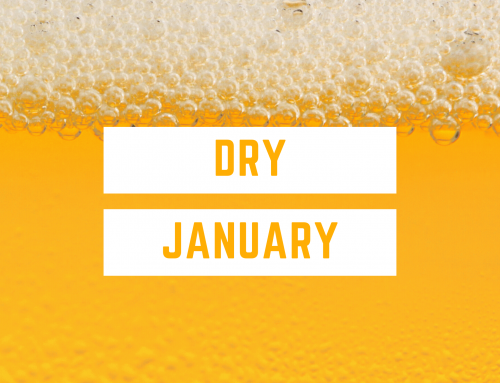Dry January | What happens to the body after a month of abstinence?
Dry January | What happens to the body after a month of abstinence?

Dry January, a campaign that encourages the abstinence from alcohol during the first month of the year, has become increasingly more popular in recent years with many participants reporting that they feel ‘better’ when not regularly drinking alcohol. Anecdotes aside, how much can a month without booze benefit the body and mind?
Firstly, its important to establish that not everyone who drinks alcohol has a problem with alcohol. If someone was to drink sparingly, they would likely not feel the benefit from a break. Those that drink frequently and those that have overindulged during the festive period are the most likely to benefit from a month-long pause. The month of January falls at the ideal time for those hoping to impose more self-discipline and improve their physical health and wellbeing.
Not unlike tobacco use, the chronic ill effects that alcohol can have on the body are initially unnoticed and silent, (though the bodies response the next day often gives clues to its disproval). The liver is placed under a large amount of stress during the metabolization process in which alcohol is broken down into two main byproducts, acetaldehyde, a highly toxic substance and known carcinogen. Then, acetaldehyde is further metabolized down to another, less active byproduct called acetate, which then is broken down into water and carbon dioxide for easy elimination. The human body while, resilient and adaptive, has limitations and frequent, continuous cycles of the alcohol metabolization process carry dose dependent risks in the form of damage to the liver, brain, stomach, heart, and pancreas as well as increased likelihood of cancers and strokes.
Considering the above process, a month without alcohol gives the liver some much needed time to rest and recuperate. Participants can also look forward to improved sleep which will aid in systemic repair and recovery. Initially however, moderate to heavy drinkers may find it harder to fall asleep as they enter a withdrawal phase. Sleep is something that is greatly impacted by alcohol consumption with some people confusing the ease in which alcohol allows them to fall asleep for restful sleep, when in truth this sleep is often of a poorer quality. Sleep patterns should improve over the month leading to more sustained energy as well as improved focus during the day. As alcohol is a diuretic (meaning it draws water from the body), regular drinking can lead to dehydration. This can lead to the skin becoming dry and losing its elasticity and the eyes appearing sunken. During the month, participants can expect the skin to improve, becoming firmer and more youthful as hydration levels improve. Weight loss and improved fitness are likely to be overlapping goals for many during this time and this can be an ideal period to become aware of the calories contained in alcoholic drinks. It’s common when alcohol is removed from the diet to see a reduction in weight through bodyfat due to the ingestion of fewer calories tipping the individual into a calorie deficit. Further physiological improvements may include a lowering of blood pressure and a stronger immune system while psychological shifts may include improved mood and less anxiety.
The risks and harms associated with drinking alcohol have been systematically evaluated over the years and are well documented. The World Health Organization published a statement in 2023: when it comes to alcohol consumption, there is no safe amount that does not affect health. This was fairly damning and countered the popular notion that risks are only associated with heavy drinking and prolonged abuse.
With the above considered, it’s fair to say that the only way to mitigate the risks entirely is to abstain from alcohol entirely. Risk management is a part of life, and it helps to be educated and informed so that any choices can be made with clear knowledge of the risks apparent. Although complete abstinence from alcohol may not be the end goal for everyone, a month without may help to realign the relationship with alcohol and ultimately lead to a better balance going forwards.

